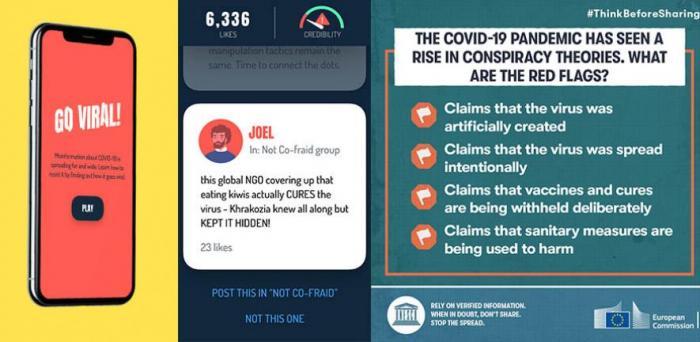A short online game designed to fight conspiracies about COVID-19 boosts people’s confidence in detecting misinformation by increasing their ability to perceive its “manipulativeness” compared to genuine news, according to a study.
Go Viral!, developed by the University of Cambridge’s Social Decision-Making Lab in partnership with the UK Cabinet Office and media agency DROG, was launched last autumn as part of the UK government’s efforts to tackle coronavirus falsehoods circulating online.
The five-minute game puts people in the shoes of a purveyor of fake pandemic news, encouraging players to create panic by spreading misinformation about COVID-19 using social media – all within the confines of the game.
Researchers say that, by giving people this taste of the techniques used to disseminate fake news, it acts as an inoculant: building a psychological resistance against malicious falsehoods by raising awareness of how misinformation works.
“While fact-checking is vital work, it can come too late. Trying to debunk misinformation after it spreads is often a difficult if not impossible task,” said Prof Sander van der Linden, Director of the Social Decision-Making Lab at Cambridge University.
“Go Viral! is part of a new wave of interventions that aim to ‘pre-bunk’. By preemptively exposing people to a microdose of the methods used to disseminate fake news, we can help them identify and ignore it in the future.”
The latest findings on the game’s effectiveness, published in the journal Big Data and Society, are accompanied by research on another COVID-19 “prebunking” intervention used by the United Nations Educational, Scientific and Cultural Organization (UNESCO).
UNESCO deployed infographics across social media highlighting tropes common to COVID conspiracy theories, such as claims of a “secret plot” or that the virus was spread intentionally, as part of their #ThinkBeforeSharing campaign.
Reproduced courtesy of the University of Cambridge
